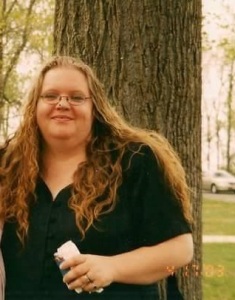Not all fats are created equal… I am sure you have heard that term before and it is true. The Low Fat craze nearly killed me, especially mixed with a lower carb diet. I am sure you have heard the debates about saturated fats being evil and the hype of all these vegetable oils being good for you. But just how true is all of it? Time for research!
The information I am about to share here is from my own research and observations. I subscribe to eat what you want, or as your doctor ordered, not as I say. Do your own research on all of this!
Let’s begin with the typical fats in most processed products: partially-hydrogenated, usually in the form of soy, hydrogenated, vegetable oils like corn, soy, safflower oil, canola oil and I am sure there are others. Most of these oils come from plants, which in itself should not be bad, right? However, they are ALL over processed and many turn to trans-fats.
Back before the 50s and 60s, the few fats found in processed foods were lard, coconut oil and palm oil. These did not have long shelf lives, unfortunately. Can’t have aisles and aisles of boxed food sitting around for months or years if the fats in them do not last a long time. Did you also know that the government was subsidizing soy and corn farms and had an excess storage of both? What to do with all that corn (we will discuss HFCS soon) and soy? hmmm… So they began using processed partial-hydrogenated oils like corn and soy, mostly. And then butter got a bad rap, so along came a host of margarine (vegetable oil based).
Side note: have you ever set out a bowl of butter and a bowl of margarine for a day or so and watched the gnats and flies’ reactions? They will attack butter, but stay away from margarine. Did you know that margarine has a similar chemical make-up to plastic? No kidding.. do the research!
Back to the history of fats/oils. So, lard, coconut oil and palm oil were outlawed, deemed evil and swept away from our shelves (mostly!). Then in recent years, what did they discover? Those partially-hydrogenated oils had trans-fats in them that messed with cholesterol! So much for good science, eh? And yet, they are still found in almost all processed foods!
In the 90s, along came the Low Carb, Higher Fat diets of people like Atkins. Suddenly fat was good for you! But not just any fats – mostly saturated fats!
The common usable fats now for a LCHF diet are: coconut oil, olive oil, butter, lard, bacon grease, avocados, nut oils like walnut and macadamia, nuts (with the exception of too many cashews because of their high carb content and peanuts, which aren’t nuts but legumes – there will be a post on this later), full fat dairy products, and olive oil based (low carb) mayonnaise (think homemade).
What are NOT acceptable are: corn, soy, peanut, sunflower, safflower, canola oils and margarine. Also no low fat dairies.
Here are my personal preferences in the order that I use them the most: Coconut oil, butter, olive oil, avocados, full fat dairies, nuts (mostly almonds), and bacon grease. I tend to stay away from bacon grease and lard the most because FOR ME, they are just too heavy and tend to upset my stomach and make me nauseous.
So does saturated fats really hurt cholesterol levels? Think of it this way. Every cell in your body needs cholesterol. Your brain needs it the most to function, fire those synapses, regulate moods, think clearly, etc. Your joints need it to help keep those joints moving. What do you think the effects on our bodies has been in the last 50 years from the “medical attitude” toward cholesterol which is found in saturated fats like animal fat, coconut oil, and palm oil? Think about the diseases that have been steadily (sometimes rapidly) increasing. And then ask yourself just how evil is a High Fat diet of saturated fats. I will let you draw your own conclusions. I’ve already drawn mine. Do the research!

